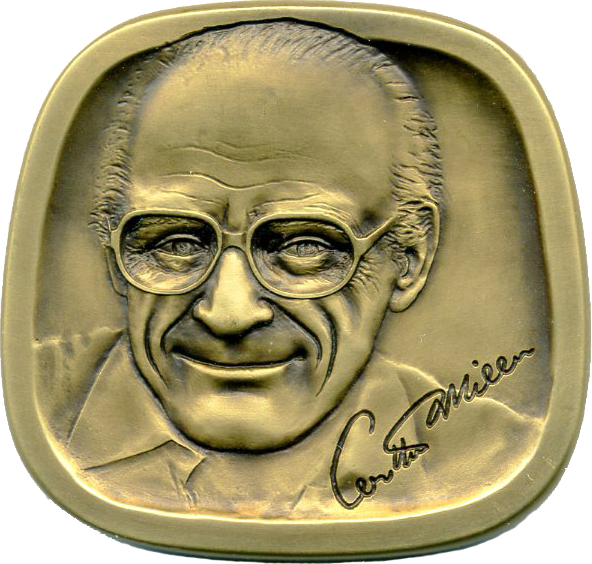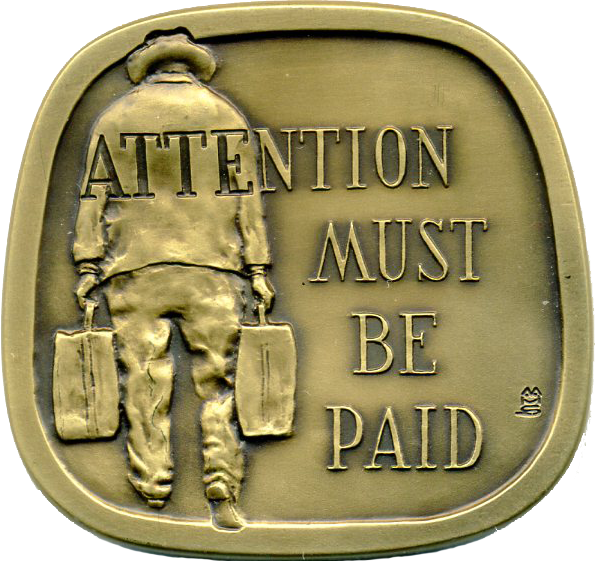 |  |
Arthur Miller medal designed by Marika Somogyi, struck by Medalcraft Mint in quantities of 165 bronze, 65 pure silver,
plus 13 cast in 10kt gold. Obverse: Portrait, Arthur Miller (signature). Reverse: Salesman, ATTENTION MUST BE PAID,
MS (monogram). 49 x 47 mm.
Arthur Aster Miller was born in New York City on October 17, 1915. After his father’s business failed, Miller graduated from a Brooklyn high school, and then dropped out from City College after just two weeks. In the depths of the Depression he took various jobs, including singing on a local radio station, and truck driving. From 1932-34, Miller clerked in an auto parts warehouse, where he was the only Jew employed. There, he had his first real, personal experiences of American anti-Semitism.
With the money he earned, Arthur Miller enrolled in the University of Michigan, graduating in 1938. While still an undergraduate, he wrote No Villain in six days, and received the Hopwood Award in Drama.
During World War II he wrote radio plays and worked as a shipfitter’s helper at the Brooklyn Navy Yard. In 1944, Miller’s first Broadway show The Man Who Had All The Luck closed after just six performances, but it received the Theater Guild National Award. Three years later, All My Sons premiered and received the New York Drama Critics’ Circle Award.
Miller’s masterpiece, Death of a Salesman, pre-miered in 1949 and received the Pulitzer Prize, the New York Drama Critics’ Circle Award, the Antoinette Perry (“Tony”) Award, the Donaldson Award, and the Theater Club Award, among others. In 1953, The Crucible opened, receiving the Tony and Donaldson Awards. The tale of the Salem Witch Trials was a poignant allegory for the McCarthy hearings that were then taking place. Prophetically, just a few years later, Miller was convicted of contempt of Congress for refusing to name people he had seen 10 years earlier at an alleged Communist writers’ meeting. Miller appealed, and the United States Court of Appeals overturned his conviction.
The motion picture that he wrote for then wife Marilyn Monroe, Misfits, premiered in 1961. After visiting the Mauthausen death camp in 1964, Miller covered the Nazi trials in Frankfurt, Germany for the New York Herald Tribune. His anti-Fascist play Incident at Vichy premiered two years later. Arthur Miller’s autobiography Time-bends was published in 1987.
Miller served as President of International P.E.N. (Poets, Essayists and Novelists) from 1965 to 1969, where he strove vigorously to organize protests against literary censorship and repression around the world. As a consequence, Miller’s works were banned in the Soviet Union.